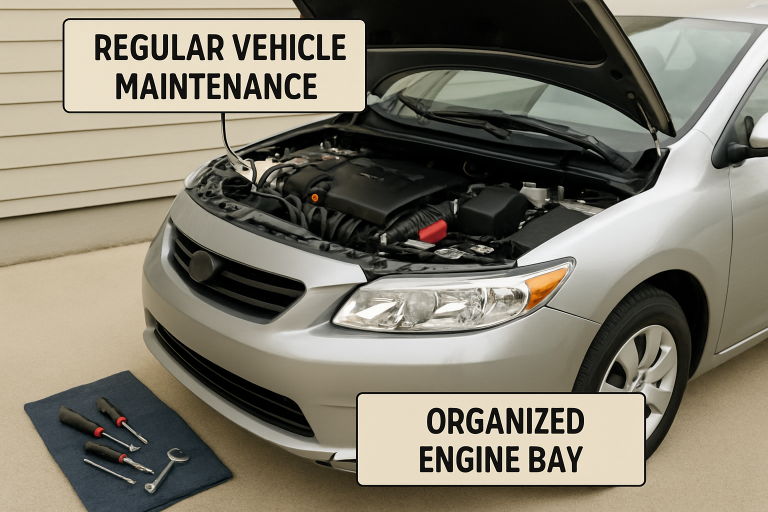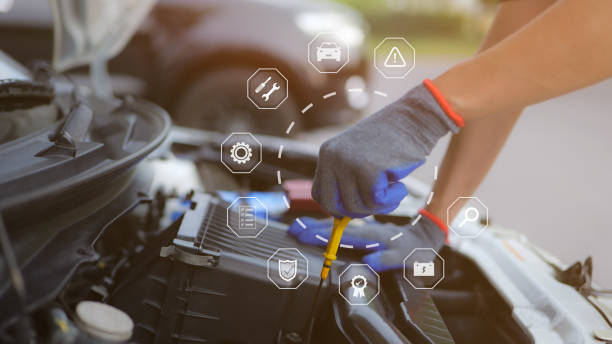Best Ways to Keep Your Vehicle Running Smoothly
Contents
Key Takeaways
- Adhere to the manufacturer’s maintenance schedule for the best results and to protect your vehicle’s warranty.
- Regular fluid checks reduce wear and prevent major system failures.
- Proper tire, brake, and battery care enhances safety and fuel efficiency year-round.
- Prompt attention to minor issues prevents unexpected breakdowns and costly repairs.
Introduction
Keeping your vehicle in optimal shape is about more than convenience—it’s about safety, cost savings, and a smoother driving experience. Proper auto maintenance not only helps you avoid breakdowns but also boosts fuel economy and keeps your investment protected over time. To discover professional maintenance resources and service centers in your area, learn more about trusted local experts. By proactively caring for your car, you extend its lifespan, optimize performance, and spot problems before they grow costly.
Staying committed to regular vehicle upkeep ensures preventable issues won’t sideline you. Maintaining fluid levels, inspecting and caring for your tires, and timely repairs help you drive confidently and securely in any season. Consider the time and money you’ll save by catching small issues early, rather than letting them develop into major repairs down the road.
Follow the Manufacturer’s Maintenance Schedule
The best foundation for long-term vehicle health is following the maintenance schedule outlined in your owner’s manual. This document details critical service milestones, such as oil changes, timing belt replacements, fluid flushes, and brake system checks. By adhering to these intervals, you significantly lower the risk of engine stress, component failure, and unwanted roadside emergencies. Manufacturers design these schedules to safeguard your investment and keep your car running smoothly for years to come.
Regular Oil Changes
Engine oil serves as the primary lubricant for your car’s moving parts, helping to reduce heat, friction, and build-up of harmful debris. Skipping or delaying oil changes can lead to engine wear, decreased fuel efficiency, and potentially irreversible damage. Most experts recommend oil changes every 3,000 to 5,000 miles, but always consult your owner’s manual for guidance that matches your specific make and model. Consistent oil changes are one of the simplest and most effective ways to keep your vehicle healthy, according to Consumer Reports.

Monitor Fluid Levels
While oil is vital, your vehicle’s other fluids(such as coolant, transmission, brake, and power steering fluid) are equally important. Failing to top off or replace these can cause overheating, poor transmission response, braking issues, and power steering problems. Make a habit of checking your fluid levels at each fuel stop or at least once a month. Dark, dirty, or low fluids are signs it’s time to flush, refill, or seek a mechanic’s advice promptly.
Tire Maintenance
Tires are crucial for safety and performance. Proper inflation reduces blowout risks and improves fuel economy. Use a tire gauge monthly to match pressure recommendations. Regular tire rotations every 6,000-8,000 miles ensure even wear, maximize tread life, and maintain car handling on wet or uneven roads. The National Highway Traffic Safety Administration provides valuable tips and recall information on tire care.
Brake Inspections
Functional brakes are non-negotiable for safety. You should have your brake system(including pads, rotors, and fluid) inspected regularly or whenever you notice squeaking, grinding, or diminished braking responsiveness. Early detection of worn parts can prevent extensive damage to brake assemblies and keep repair costs down. If you feel a spongy pedal, experience vibration, or the vehicle pulls to one side, prioritize brake inspection and service immediately.
Replace Air Filters
A clogged engine air filter can reduce acceleration, impair fuel efficiency, and strain engine operation. Check your air filter every 12,000 to 15,000 miles, or more frequently if you drive in dusty environments. Clean or replace them as necessary to keep your engine breathing freely and performing at its peak. Not only does this ensure proper combustion, but it also protects your engine from costly debris damage.
Battery Maintenance
Your battery powers everything from the ignition to lights and modern electronics. Visually inspect your battery for corrosion, loose connections, or swollen casing. Clean terminals with a battery brush and ensure cables are snug. Most car batteries last between three and five years, but factors like climate and frequent short trips can shorten this lifespan. If your engine cranks slowly or struggles to start, get your battery tested and replaced as needed to avoid being stranded.
Final Thoughts
Staying attentive to your vehicle’s warning signs and addressing issues promptly can make all the difference in preventing costly repairs and ensuring safety. By listening to your car and responding to changes early, you protect both your investment and your peace of mind. Combined with regular maintenance habits, this proactive approach helps preserve your vehicle’s reliability, performance, and value—keeping you confidently on the road for years to come.

